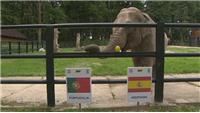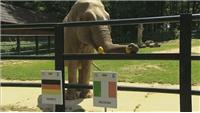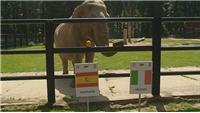
MAICON'S PAIN
Speed will concede possession to England, challenge them to make the game, and look to hit them on the counter-attack, using Bale's pace to get into the spaces behind the right back.
Bale spreads panic by shifting the game's landscape in seconds, which is what caught Inter Milan out in the Champions League.
Rafa Benitez, cautious and tactical by nature, was no stranger to Bale but still Maicon seemed unprepared. Perhaps it was complacency. As European champions, why should Inter change anything about their team for Tottenham?
England could ask the same question as they head for Cardiff to face a team 110 places behind them in FIFA's rankings and Capello is not a defensive-minded manager, but…
PHIL NEVILLE'S GAIN
Redknapp pointed out that Bale can be stopped when he revealed how Phil Neville stifled him during Everton's visit 10 days before Inter. It later emerged that the Spurs manager was trying to persuade his chairman to sign Neville.
This explained the compliment but did not stop the Everton full back - with help from Seamus Coleman - being installed as the national expert in the art of Bale-stopping.
With typical modesty, Neville put it down to teamwork. 'When you come up against the best players at Everton, you know you're not going to be left alone,' said Neville.
'The day I played against Gareth I probably had two one-on-ones. Experience tells you these players are human.'

Defensive options: Maicon (left) was torn apart by Bale at White Hart Lane, but Neville (right) fared much better
- Arbeloa: Spain must never change their style
- Wedding bells turn Iniesta's legs to jelly
- Pele: Brazil's 1970 World Cup winners better than Spain
- Pirlo: Only Spain are superior to Italy
- Spain disproved boring tag with empathic final win, insists Alonso
- Fernando Torres revels in Euro 2012 crown
- Italy can reach the final at World Cup 2014
- Johan Cruyff: I enjoyed Italy and I'm a big fan of Del Bosque's Spain
- De Gea & Mata named in Olympics squad
- Shevchenko: Euro 2012 was a success for Ukraine
Hot News
- Funny Balotelli!
- Spanish fans celebrate Euro Cup win
- That's German WAGS!
- The sexy female fans in Euro 2012
- Euro 2012: Spain fans celebrate victory
- Spain vs Italy in clash of the Euro WAGs
- Euro 2012 Final - Spain 4 : 0 Italy, Part 2
- Germany knocked out by Italy
- Natalia Siwiec blasts Sol and the BBC
- Coleen Rooney reveals her bikini body secrets
- Italy's fans celebrated wildly
- Euro 2012 Final - Spain 4 : 0 Italy, Part 1
| Rank | Team | W/D/L | Pts |
|---|
Cities & Stadiums
The Top 3 Teams of Previous Tournaments
| Year | Winners | Runner-up | Third place |
|---|---|---|---|
| 2008 | Spain | Germany | Russia / Turkey |
| 2004 | Greece | Portugal | Netherlands / Czech Republic |
| 2000 | France | Italy | Netherlands / Portugal |
| 1996 | Germany | Czech Republic | France / England |
| 1992 | Denmark | Germany | Netherlands / Sweden |
| 1988 | Netherlands | Soviet Union | Italy / West Germany |
| 1984 | France | Spain | Denmark / Portugal |
| 1980 | West Germany | Belgium | Czechoslovakia |
| 1976 | Czechoslovakia | West Germany | Netherlands |
| 1972 | West Germany | Soviet Union | Belgium |
| 1968 | Italy | Yugoslavia | England |
| 1964 | Spain | Soviet Union | Hungary |
| 1960 | Soviet Union | Yugoslavia | Czechoslovakia |




